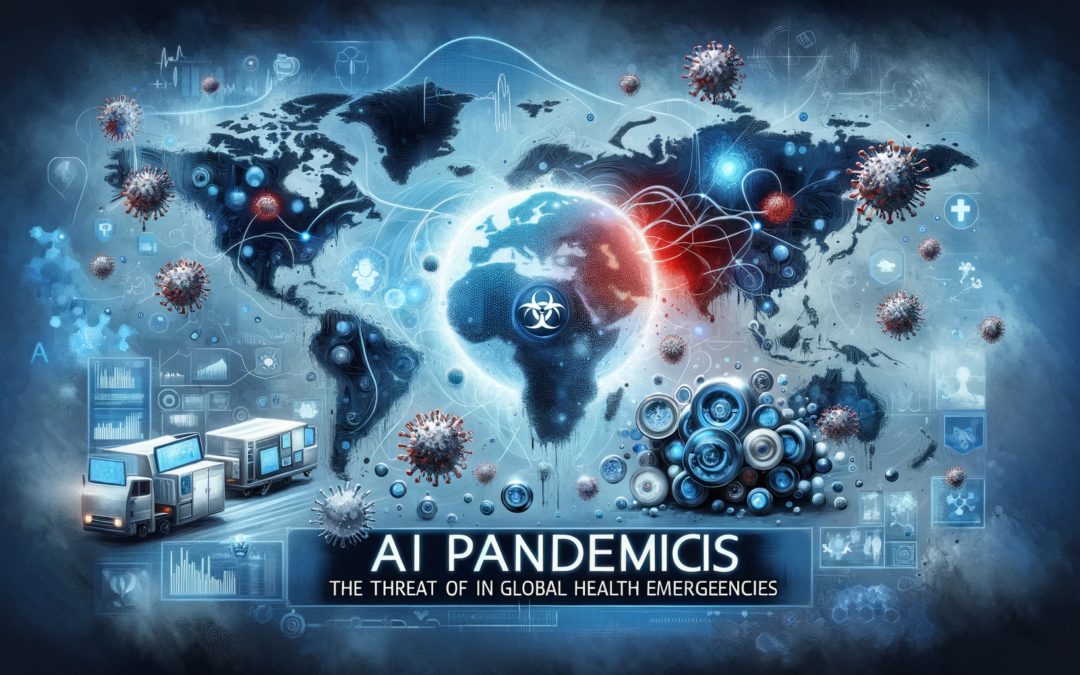Artificial Intelligence (AI) is revolutionizing the healthcare industry, but with great power comes great responsibility. While AI has the potential to improve patient care and outcomes, there are also risks associated with its misuse or malfunction. In this blog post, we will explore the concept of an AI-induced global health crisis, examining how AI failures in healthcare systems and the creation of bioweapons could lead to catastrophic consequences.
AI Failures in Healthcare Systems
Imagine a scenario where an AI system responsible for diagnosing diseases malfunctions, leading to misdiagnoses or treatment errors. The consequences could be devastating, with patients receiving incorrect treatments or experiencing delays in receiving life-saving interventions. Such failures in healthcare systems could have far-reaching implications, jeopardizing public health and eroding trust in AI-powered healthcare.
AI and Bioweapons
While AI has the potential to advance biotechnology and genetic engineering, it also poses significant risks. The misuse of AI in designing or enhancing biological weapons is a dark reality we must confront. The ethical and security concerns surrounding AI research in these areas are paramount, as the consequences of AI-assisted bioweapon development could be catastrophic. It is crucial to address these concerns and establish strict guidelines to prevent the potential misuse of AI in biotechnology.
Impact on Public Health and Safety
An AI-induced health crisis would have profound implications for global public health and safety. Such a crisis could strain healthcare resources, overwhelm emergency response systems, and exacerbate existing health inequalities. Vulnerable populations would be particularly at risk, as they often have limited access to healthcare and would be disproportionately affected by any disruptions in the system.
Ethical Dilemmas and AI Governance
The advancement of AI in healthcare and biotechnology raises ethical dilemmas that must be addressed. Issues of consent, privacy, and the potential for unintended consequences demand careful consideration. Robust governance and ethical guidelines are essential to ensure the safe and responsible use of AI in these fields. We must navigate these dilemmas with caution to prevent any unintended harm caused by AI technologies.
Preventing a Catastrophe
Preparedness and resilience are key in mitigating the risks associated with AI in healthcare and biotechnology. Rigorous testing of AI systems, international collaboration, and the development of ethical AI practices are crucial steps in preventing potential emergencies. By putting safeguards in place, we can harness the benefits of AI while minimizing the risks it poses to global health.
Conclusion
The potential threats posed by AI in global health are significant and require immediate attention. It is essential to strike a balance between leveraging the benefits of AI in healthcare and safeguarding against its dangers. By fostering awareness and promoting dialogue, we can work towards the careful and ethical management of AI technologies in health and biotechnology. Let us embrace the potential of AI while ensuring its responsible and safe use for the benefit of all.
Visual Elements:
Include evocative images that reflect the theme of AI’s impact on global health and potential emergency scenarios. Use infographics to depict the intersection of AI and healthcare, as well as the risks and preventive measures.
SEO Elements:
Integrate keywords like “AI health crisis,” “AI and bioweapons,” and “AI in healthcare risks” naturally throughout the content. Create a compelling meta description that encapsulates the post’s focus on the potential health emergencies induced by AI.










